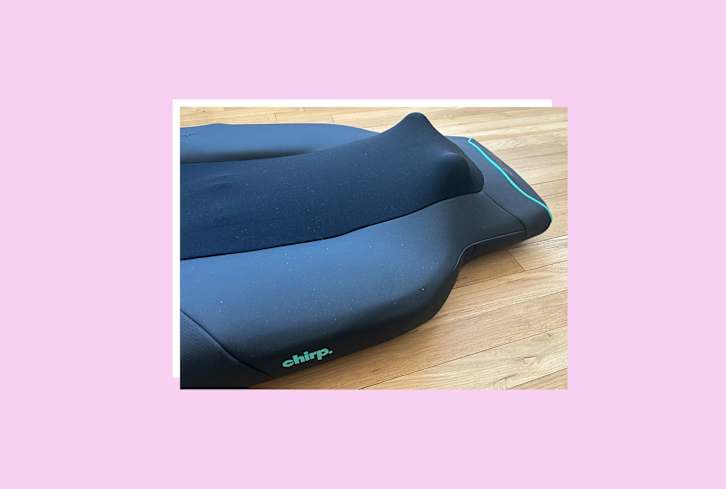Advertisement
3 Underrated Tips To Boost HRV & Why This Metric Matters


With the uptick in wearable devices hitting the market, heart rate variability (HRV) is still quite a hot topic. As WHOOP founder and CEO Will Ahmed shared on a mindbodygreen podcast episode, this powerful metric can help you understand your body's current state at any given moment.
In general, the higher or more stable your HRV score, the better. But how do you elevate your own levels?
To come, three underrated ways to raise your HRV, plus a quick refresher on why it matters.
What is HRV again?
At a glance, HRV is a measurement of how much variation between the timing of your heartbeats. Having a higher HRV is a sign you are fit, well-rested, and recovering well. Having a lower HRV means that you could be stressed, burnt out, or sick.
HRV is starkly different from resting heart rate, as the former doesn't have one ideal range to shoot for. Instead, improvement is all about increasing your personal HRV, measuring success against your former HRV rather than comparing your levels to others.
You can see this notion of individualized ideals from a 2020 study on Fitbit data from 8 million users1' smartwatch data—factors like sex, genetics, and even hormonal shifts during menstruation2 and menopause3 can significantly alter your HRV.
We've covered HRV in depth before, so check out this article for more information on what your ideal HRV looks like and extra tips to reach your goal.
3 underrated ways to boost it
HRV is an interesting metric to work on because you'll want to address both your physical and mental health to truly optimize this number. Here, find Ahmed's underrated tips:
Focus on hydration
"Hydration is probably one of the more underrated things when it comes to heart rate variability," Ahmed says, adding that dehydration tends to go hand-in-hand with slower recovery.
Staying hydrated (and supplementing with electrolytes as needed) can also bump up your score and decrease your resting heart rate4.
If you're struggling to drink more water daily, consider these quick tips:
- Find a water bottle you actually love—some of our favorites here.
- Set reminders throughout the day on your phone.
- Naturally flavor your water with lemon, cucumber, mint, etc.
Practice mindfulness
"People who tend to be meditators or have some kind of mindfulness practice often have higher heart rate variabilities," Ahmed says. (And research backs him up5!)
There are plenty of mindfulness habits to choose from, including but not limited to meditation, breathwork, yoga, or simply engaging your mindfulness muscles during a daily stroll.
Whatever practice you choose, keep it on hand for stressful times, and utilize mindfulness as a way to calm down quickly, benefiting both your mental health and your HRV.
Don't underestimate the impact of sleep
When you're sleeping, your body kicks into recovery mode—so it's not surprising that clocking a full night of high-quality sleep can support a healthy HRV6.
This doesn't just mean getting into bed earlier (though that's a worthy first goal) but focusing on how much reparative sleep you get—this includes REM sleep and slow-wave sleep, Ahmed explains.
The first step to better sleep is fairly intuitive: Keep your sleep schedule in check. Research has shown that maintaining a regular sleep schedule (going to bed and waking up at the same time every day) is one of the best ways to promote deep, consistent sleep—so don't sleep on this simple scheduling tip.
Other ways to improve sleep quality include limiting late-night alcohol, keeping your bedroom cool, and getting more sunlight during the day (just to name a few).
Sleep aids can be incredibly beneficial as well, but you'll want to reach for ones with magnesium over melatonin for daily use—here are a few great magnesium supplements to try if you're in pursuit of better sleep.
The takeaway
Having a high HRV indicates that you are well rested, fit, and recovering well—but everyone's ideal range looks different. To improve your own HRV, go back to the basics: Drink enough water, have a mindfulness practice on hand, and never underestimate the power of sleep. For more on health metrics and HRV, tune in to the episode below:
6 Sources
- https://www.thelancet.com/journals/landig/article/PIIS2589-7500%2820%2930246-6/fulltext
- https://www.ncbi.nlm.nih.gov/pmc/articles/PMC4625231/
- https://pubmed.ncbi.nlm.nih.gov/35608101/
- https://pubmed.ncbi.nlm.nih.gov/32078090/
- https://www.ncbi.nlm.nih.gov/pmc/articles/PMC7746169/
- https://pubmed.ncbi.nlm.nih.gov/35565165/


















